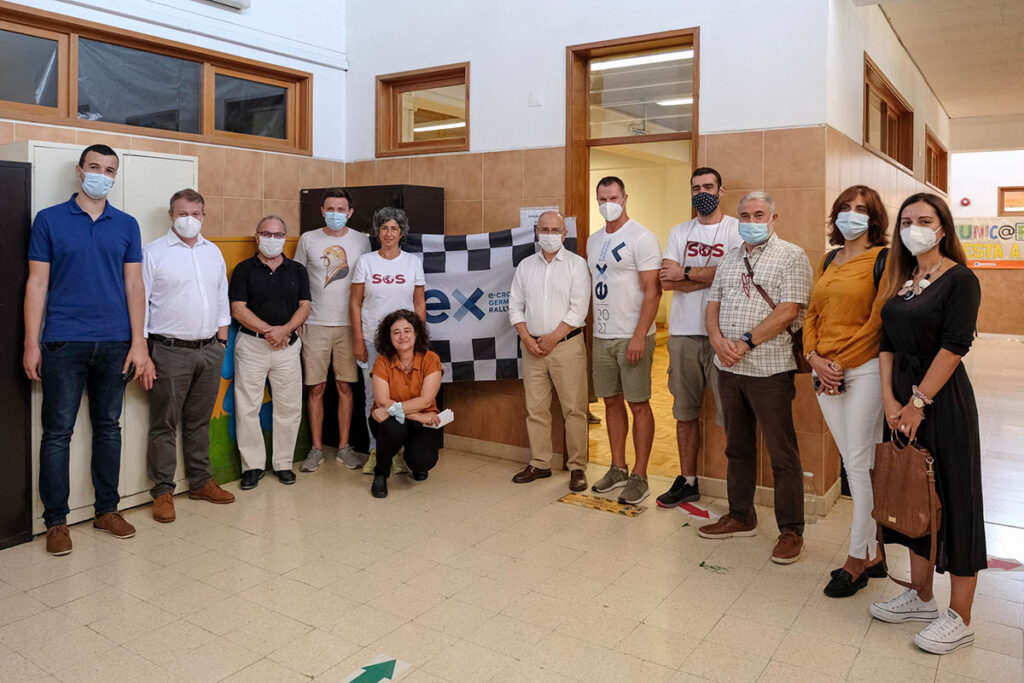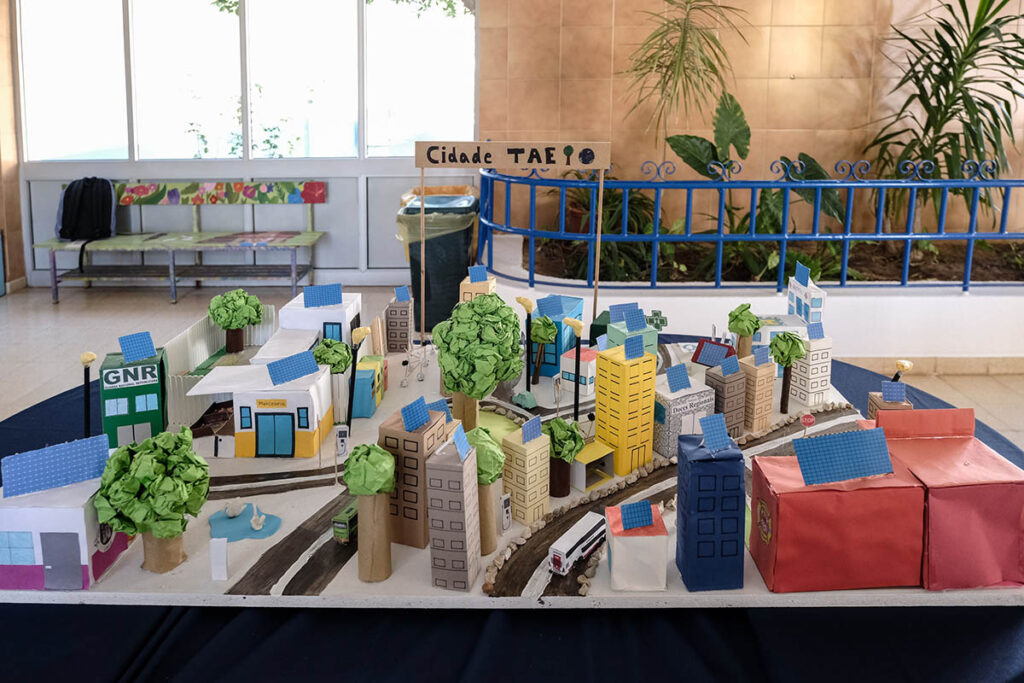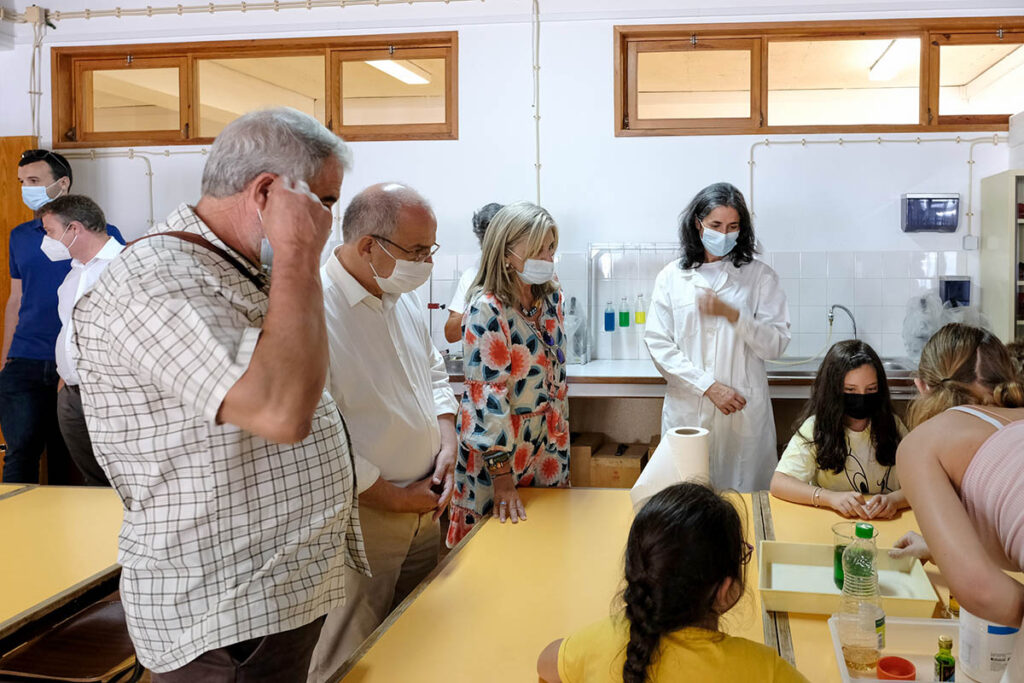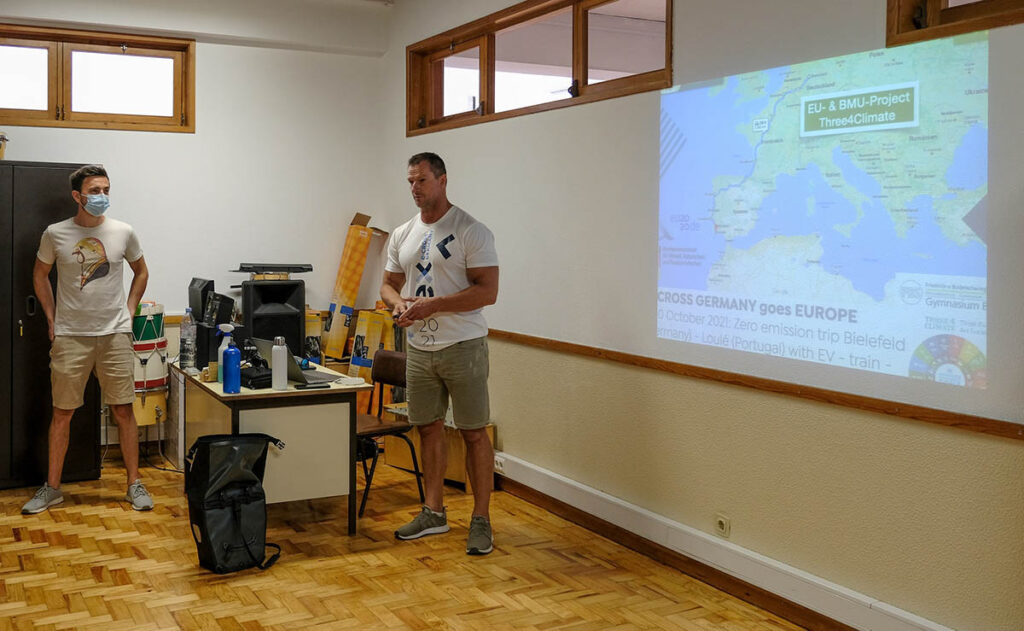An electric vehicle, a train and a bicycle were the three means of transport used by Jens Ohlemeyer and Tobias Dewald to travel around 3 kilometers between the German city of Bielefeld and the village of Salir, in the municipality of Loulé, in four days, without any emission of polluting gases into the atmosphere.
The two German teachers who are part of the European project “Three4Climate” were this Thursday at the EBI Prof. Sebastião Teixeira, from Salir, to talk about his experience and show the students and faculty of this energy school community that the future of the Planet is not only about sustainable mobility, but also about many other everyday actions that could be decisive for the goal. carbon neutrality by 2050.
On the first day of the journey, behind the wheel of an electric vehicle, the two Germans traveled to Bordeaux, France, with a stopover in Brussels, the heart of the European Union, where they left the demands of students from the project's schools with European officials.
On the second day, the route took them to the national territory and Braga was the destination. In this city, which, along with Loulé, is the Portuguese partner in this international project, they parked the electric car to travel to Lisbon by train, on the third day of this adventure.
Finally, on the last day – the fourth – it was also this means of transport that they used to travel between the capital and the city of Beja. From there they left for Salir, a village in the interior of the Algarve, on an electric bicycle.
It was an experience with some obstacles, as they themselves recalled, especially in terms of the logistics of charging the electric vehicle, but it came to show that it is perfectly possible to travel, even over long distances, without harming the environment. “Electric mobility is one of the technologies that we must increasingly use”, emphasizes Jens Ohlemeyer, professor of English and Physical Education in Bielefeld.
The visit of these professors is just one of the actions of the “Three4Climate” project, which started in June 2020, and was created to promote climate activities at a local level in support of the European Council's tri-presidency headed by Germany, Portugal and Slovenia.
It involves 6 municipalities – Bielefeld, Braga, Maribor, Radolfzell, Loulé and Kranj, and 6 schools, including EBI de Salir, one of the country's educational establishments most involved in these sustainability matters.
“Three4Climate” is fundamentally based on collaboration between the different participants for decarbonisation, on cooperation for climate action at local, national and European level, and on the exchange of experiences and sharing of good practices in the field of carbon neutrality.
As the project coordinator in Portugal, Matías García, explains, “what we want is to promote the cohesion of different levels of government, from the local level, which can be municipalities or schools, passing through the national governments of each country to the European entities”.
“We have to act now and take the demands from the bottom up, promoting collaboration among everyone. Right here, with this exchange between teachers from these countries, we are fine-tuning methodologies to better integrate education for sustainability in schools, creating partnerships for this to happen”, said the official.
This was, moreover, one of the messages of the two German teachers who spoke of the need for there to be “more funding and more human resources in schools that are channeled towards education for sustainability”. Interdisciplinarity, that is, the involvement of the various disciplines in this matter, as well as the integration of a person dedicated to this area into the teaching staff of the schools will be decisive.
Regarding the presence of the Municipality of Loulé and the already awarded EBI School of Salir in this international project, Mayor Vítor Aleixo said that it is “of great interest to create different dynamics that promote behavioral change in favor of responding to climate change”.
Not least because, as he said, “climate policy is taking its first steps and it is perfectly understood that school communities around the world are one of the main drivers to implement policies to adapt to climate change”. In Salir, he reaffirmed his position on this pressing matter, which involves the urgent involvement of the whole of society - schools, companies, families, public institutions: "We are already very late, there has to be a general mobilization to face this which is the greatest problem that Humanity has ever faced!”.
Considering precisely this involvement of all, professors Jens Ohlemeyer and Tobias Dewald stressed that it makes perfect sense to integrate environmental protection as a fundamental right that must be guaranteed by the European Court of Human Rights, a situation that does not exist at present. "
All people, especially young people, have the right to claim their rights to a preserved and protected environment in the future. A company may therefore be sued for not complying with this right. We can turn off the lights when we leave a room, we can recycle, avoid plastic, but that's not enough. We also have to make these demands reach the politicians and economic power”, also observed professor Jens Ohlemeyer.






















Comments